by Nick Drew | Tue 03 Dec 2024
Finnish Processing Pedigree
Bringing another one of my articles previously published in Earthmovers, to life on the internet, un-edited in my own words with alternative photos and video.
Finnish family-owned business ALLU are best described as the pioneers of the screening and crushing bucket concept. Initially founded as an innovative local engineering company in the Lahti lakeland area in 1985, ALLU is rapidly looming in on 40 years in business and has become a global player in the sector.
Initially known as Ideachip Oy before rebranding to ALLU in 2007, like so many of these businesses it was formed from humble beginnings, with the entrepreneurial visions of the owner and current chairman of the board Markku Jonninen and a partner, these two engineers started making drawings for crushers, those drawings still exist to this day and can be regarded as the historical basis of the company.
Those early crusher designs were sold to German business Jenz mobile crushers who were cooperating with the Finnish designers. As a sideline to the engineering side of the business, the company started importing some Jenz products into Finland in addition to Seppi mulching equipment both of which they were selling as dealers.
Fredrik Dromberg - VP of Sales at ALLU takes up the story, “In the late 1980’s the team came up with an idea, to make an attachment that could easily fit onto an excavator or a wheeled loader and make it into a material processing machine.
The first prototypes of the screening/crushing buckets were developed during this period and the first production model crusher bucket itself was launched in 1991, so it was at this point that the concept came to fruition and sales started. So effectively we were the inventing company of using a bucket for such material processing”.
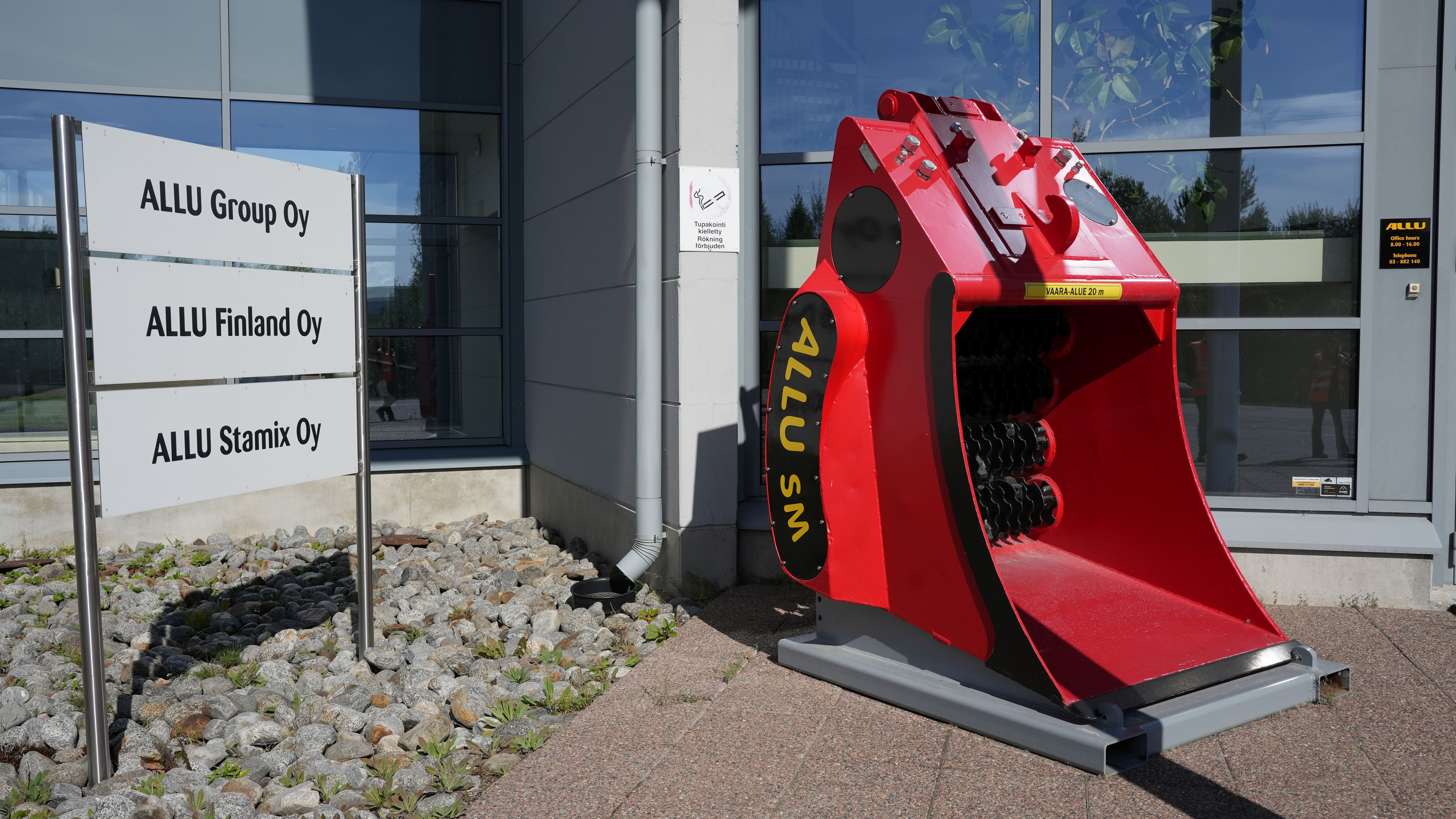
Realising that Finland was generally a small market, they realised that if they wanted to become a big player then they would need to be looking outside the Finnish borders. In the early 1990’s some exporting of the products began, initially in Germany and across other Nordic regions, around this time they started to set up a dealer network too something which continues to this day.
In 2007 the company moved into a new facility on the other side of Lahti and the company officially changed the brand to ALLU. The name came from the Allosaurus a large carnosaurian theropod dinosaur that roamed the earth some 155 million years ago, and this dinosaur features surreptitiously within the ALLU logo, which is a nice piece of brand marketing in my opinion.
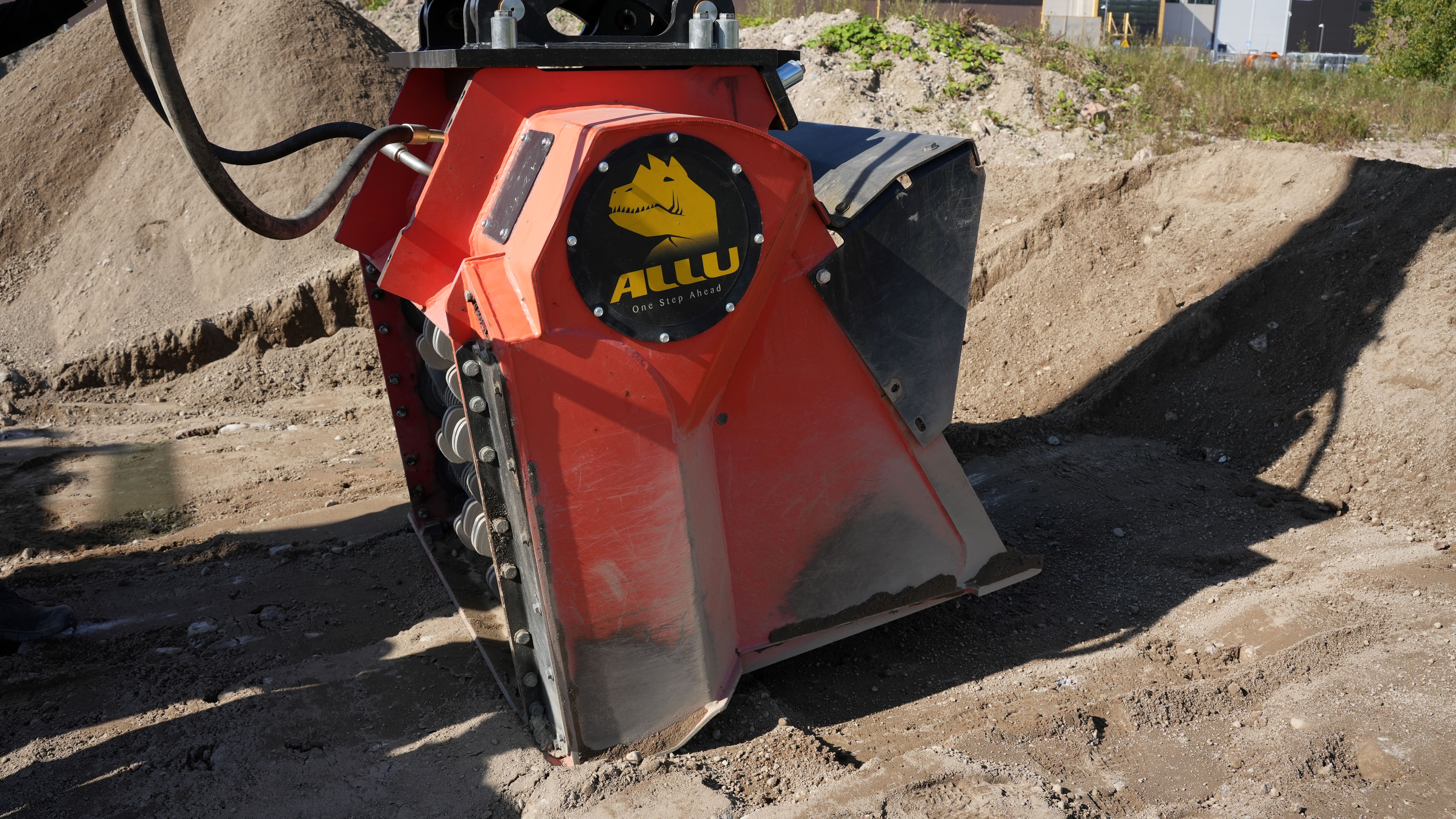
They have been in this facility ever since it opened, and it is here where they are designed and prototype work is undertaken, however there is no so called “dirty work” undertaken here, it is purely assembly of the components to create the finished products. Fabricating of frames, drums bearing units, welding and even painting is undertaken locally by partner companies under strict ALLU quality control measures, these individual components are then delivered to the facility, where a team of ten assemble the various units, they are quality control checked and then despatched to customers around the world.
The workshop floor team is headed by the production foreman/woman Taija Antilla who has the responsibility of keeping the guys in order!
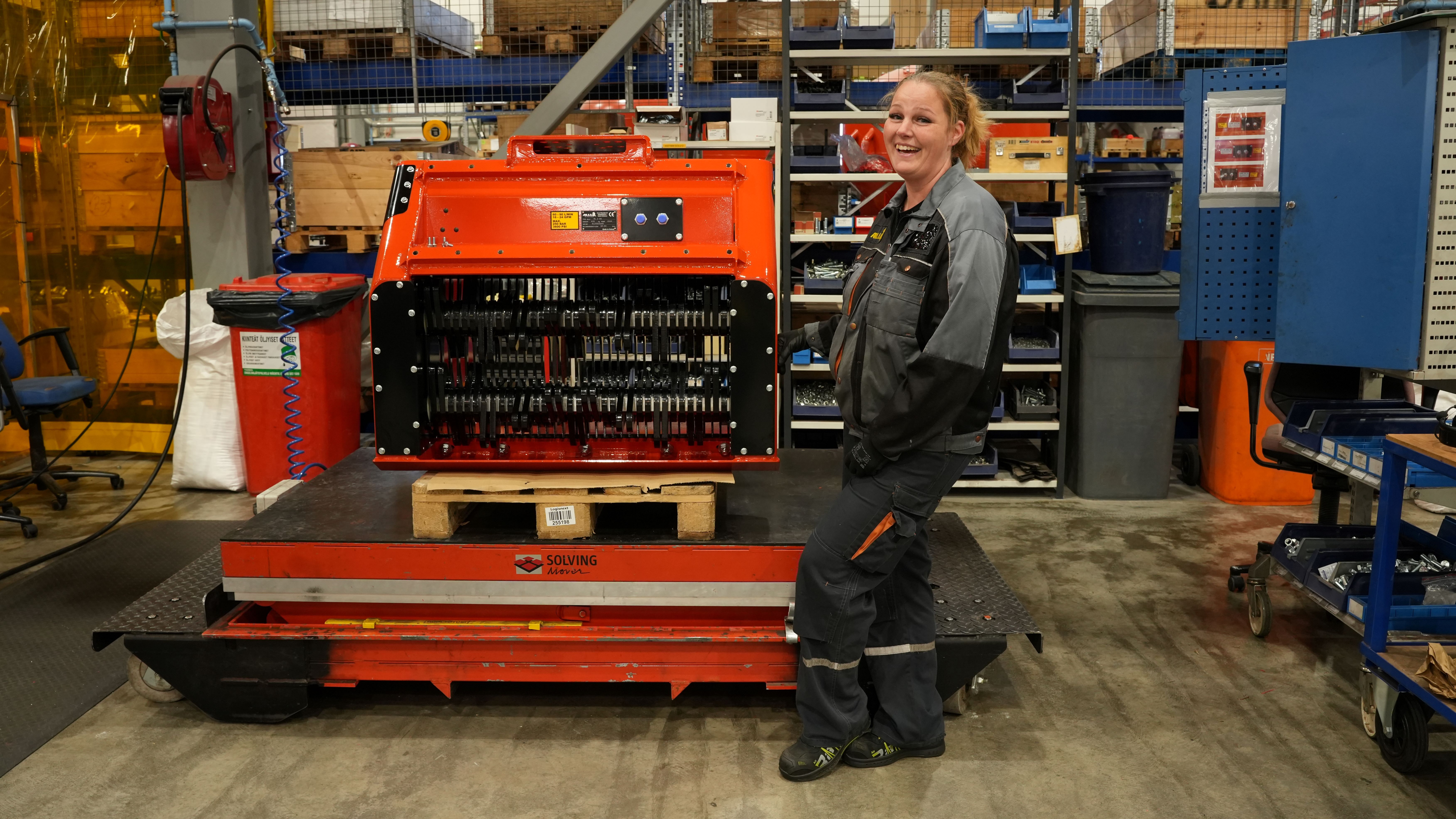
Although the business is based in Finland, they have sister companies around the world that are 100% owned by Finland, including the US operation which was the first to be established back in 1997, and operations in Sweden, Germany and France. In addition, in 2004 they established an operation in China.
ALLU sees its biggest sales growth coming from the US and China, Europe remains a vital market for the company, accounting for over half of its sales (including 5% direct sales to Finnish customers). The US currently represents around 20% of ALLU sales, with China and the rest of the world generating the remaining 20%.
Talking about China and the Chinese market Fredrik Dromberg said, “Previously we were making everything here and exporting it to China and selling the product there. We found some good niches in the coal business for instance, where customers were prepared to pay the cost of importing from Europe.
It was not so easy really because the bucket cost was in the region of 60,000 euros and the loader was something like 15,000 so it was difficult but somehow it worked back then.
Now as we know, there are lots of copy cats in China, and the Chinese learn very quickly, so nowadays we have changed our business model down there. So nowadays we have a factory in China, which produces buckets purely for the Chinese domestic market, and its important to add that nothing made in our Chinese factory is used in our products for the European and US markets, its purely for China so we are able to compete in that market”.
For the rest of the world ALLU currently export to around 40 different countries to be sold by the various dealers in those countries, with continued support from the HQ in Finland in terms of product support, parts stock and of course a good stock of buckets ready to go to shorten delivery times.
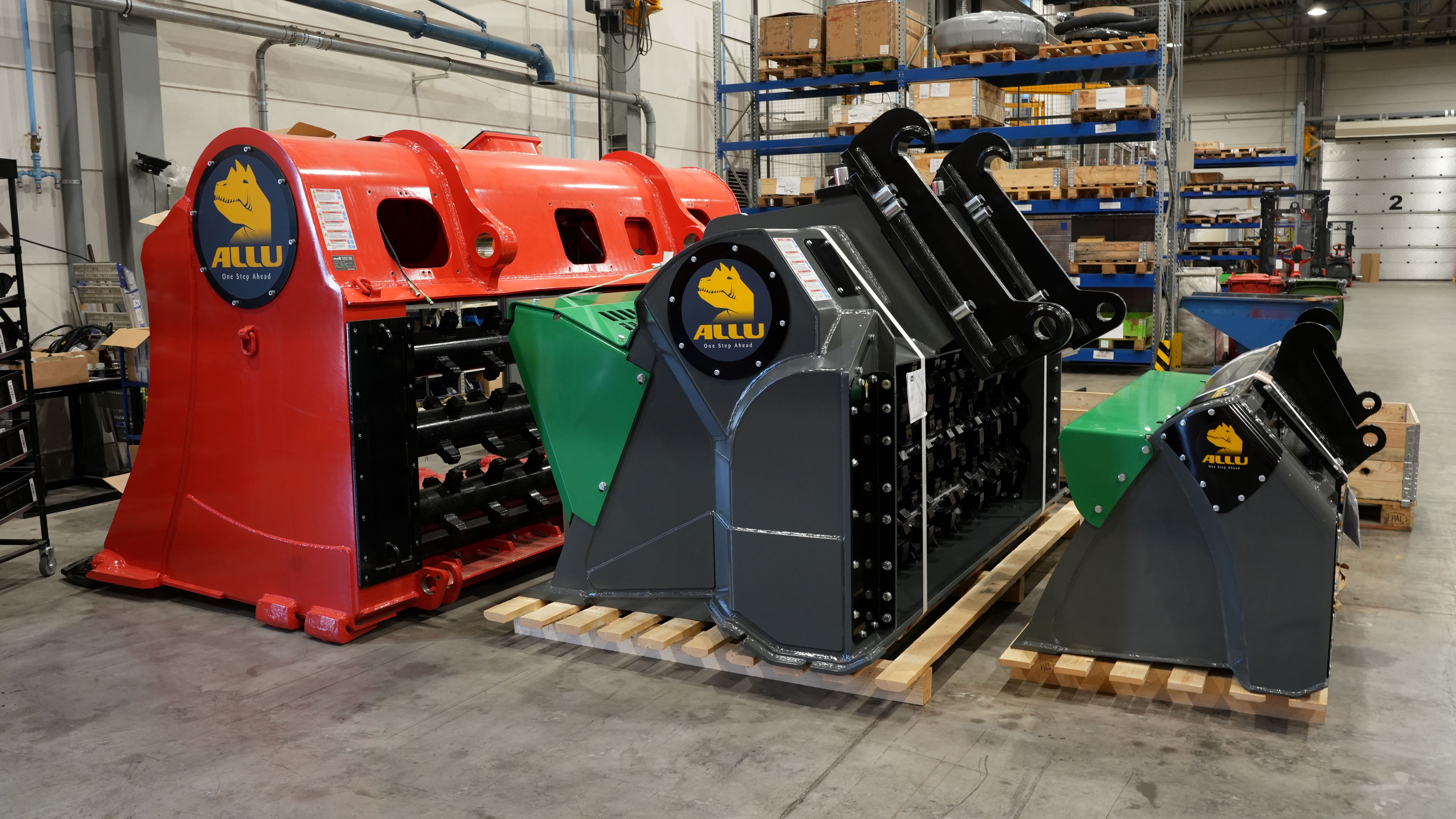
The company is always open to developing something that a customer has requested as Fredrik explained, “Sometimes we get a crazy question from somebody asking if a bucket could be used on a specific machine or application, so then we will make a trial and let the engineers do their stuff, and if there is enough potential for sales then we will put it into production, that has always been the way here and its not something we want to change.
We do like to mess around with new things and prototypes, I mean 80% of them may never turn into something, but it’s a continuous process with us. This philosophy has a lot to do with our owner, because he is an inventor first and foremost and a true engineer and is still actively involved in the development side of things at the company”.
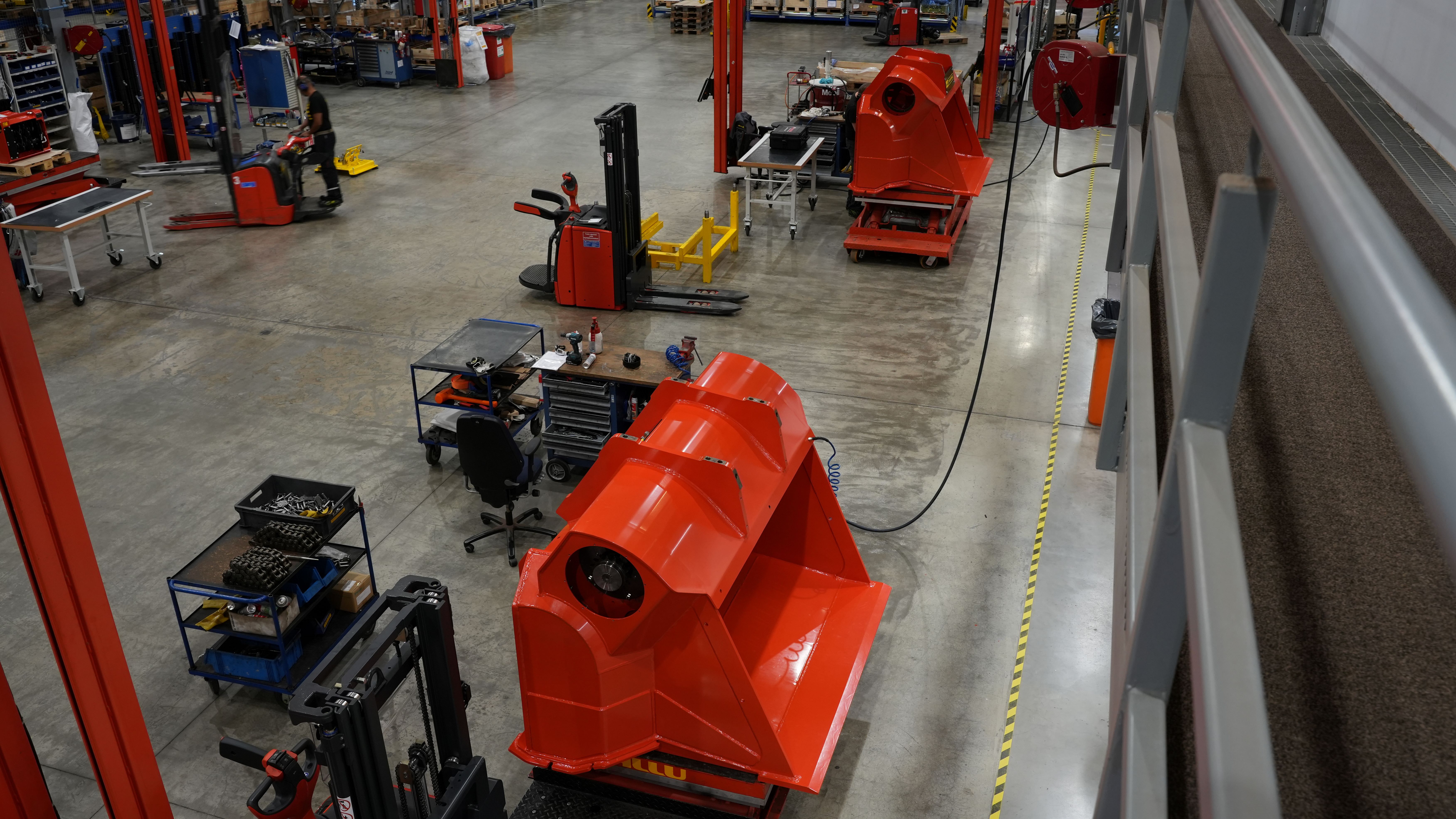
The company is also seeing a large rise in the smaller machinery sector especially with landscaping companies, running mini excavators and compact loaders which is growing fast and they see a lot of potential for their products in that sector in the coming years. This sector is covered by ALLU’s DC-Series of screening buckets suitable for excavators up to a maximum of 4-tonnes. Above that weight class we have the DL-Series suitable for excavators up to 12-tonnes, wheel loaders up to 8-tonnes and for tractors and backhoe loaders. The D-Series covers excavators up to 45-tonnes and wheeled loaders up to a maximum of 30-tonnes.
At the other end of the scale the company offers its M-Series range of heavy duty screening/crushing buckets which are aimed at mining operations and other heavy duty applications, these are suitable for excavators up to 160-tonnes and wheeled loaders up to 90-tonnes. They have quite a large number of these buckets working 24/7 out in the mines most notably with Anglo American mining, and a lot of them in operation up in the far north of Sweden in the iron ore mines.
One of the biggest M-Series buckets they ever delivered was to a phosphate mine in Morocco, where it was fitted to a 300 tonne Komatsu excavator. The impressive looking bucket weighed in at 32-tonnes when empty and in operation has been capable of producing 1000 tonnes per hour.
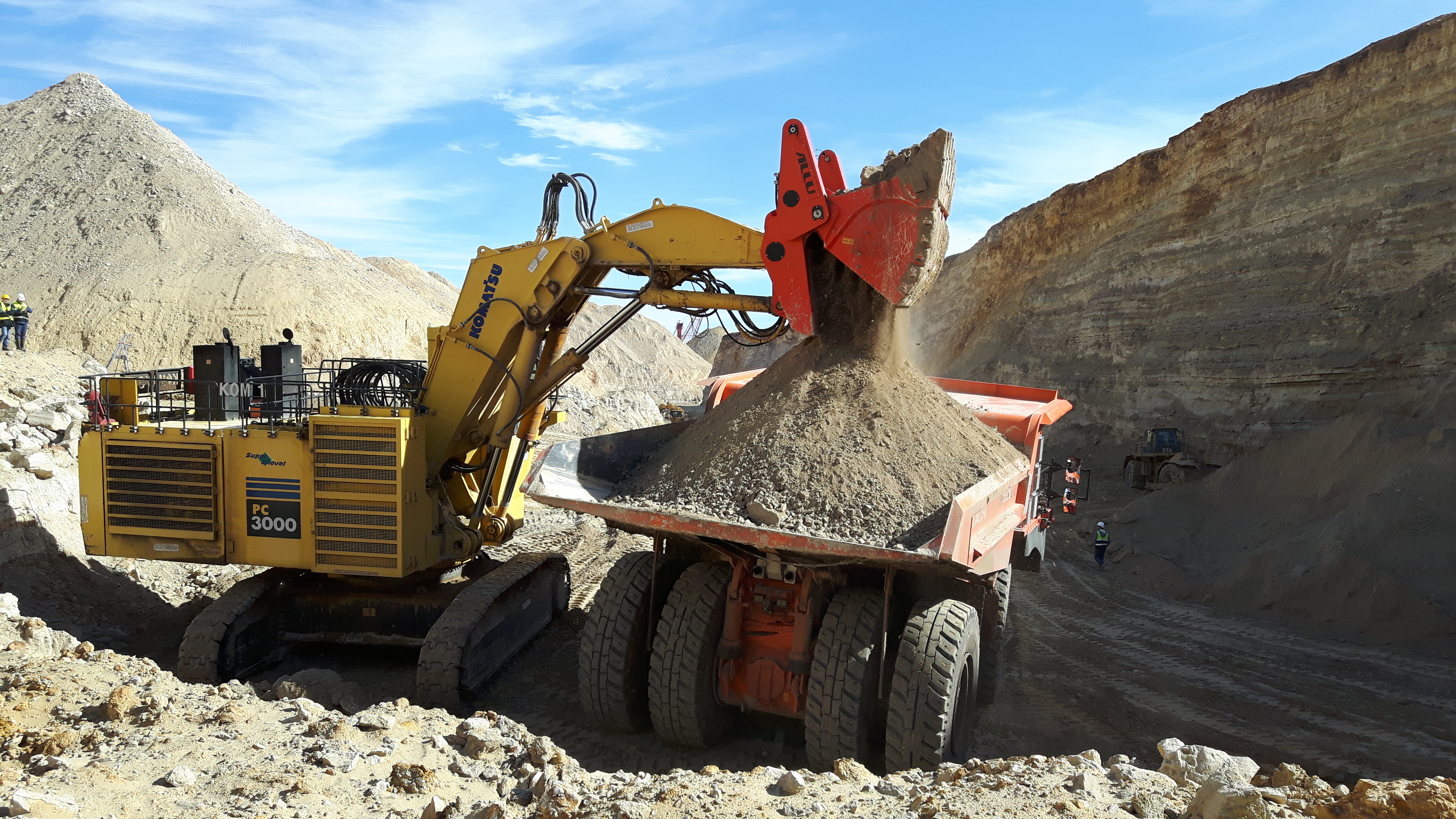
It was used to get waste rock out of the phosphate, because the customer was having problems with the rock ripping up the conveyor belts and the chutes for loading dumptrucks, which would often cause blockages resulting in serious queues of up to 20 trucks standing idle, a very costly situation, with the screening bucket this produced cleaner material to take away resulting in less blockages.
Fredrik said, “That was a fun project to be involved in and even to this day, we are always open for a challenge, if somebody wanted to have a bucket to fit a Caterpillar 994, I mean, anything can be built if that is the desire of the customer, and if they are willing to pay the bill for it!”.
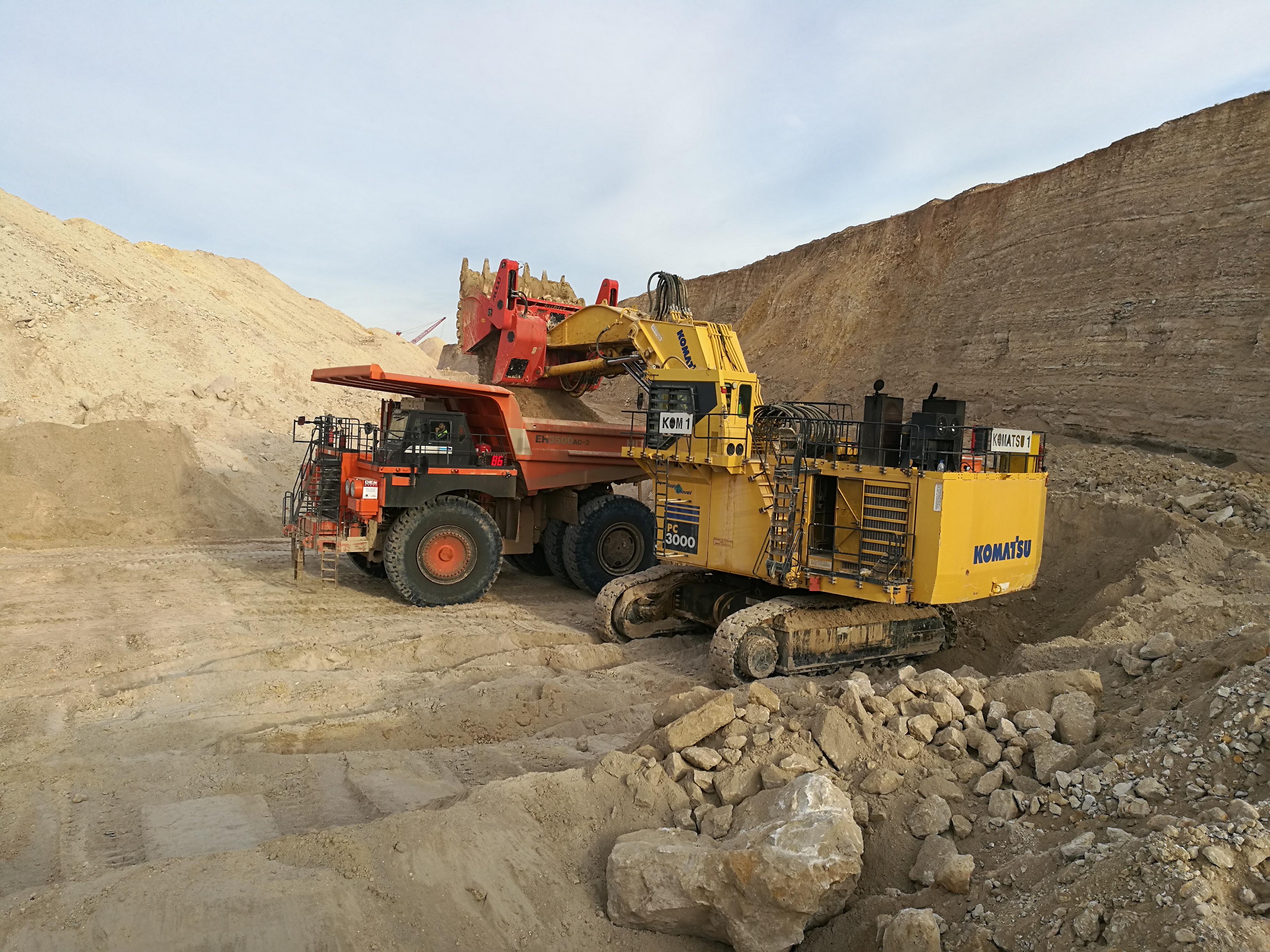
What I found really interesting from this visit was learning about the wide range of materials that ALLU buckets can work with and in many case quite literally transform from a waste product, to a fully recycled usable material, not only soils, but demolition and construction waste, asphalt, coal, limestone and even plasterboard, bark, cardboard, glass and bio-waste to name a few, and this is the message we should be getting out to the recycling world, and as ALLU like to put it, “Turning trash to cash!”
Plastic remains one of the hardest products to recycle but new products to shred plastic waste are coming down the line all the time.
Having digested the history and background to the business, it was time to venture down to the state-of-the-art product assembly and testing centre. I was super impressed by the cleanliness and efficient operation of this facility and as we toured around it was great to see various sized Transformer units being put together especially the D Series variable drum models, one example of which was having its drive chains fitted.
The D-Series VD units enable the fixed TS (Top Screen) blades to be quickly replaced, without the need to open up the drive chain-box to dismantle the assembly which could be a time-consuming operation. With the new system downtime is greatly reduced without the need to drain oils, enabling you to change an individual drum component or blades as needed.
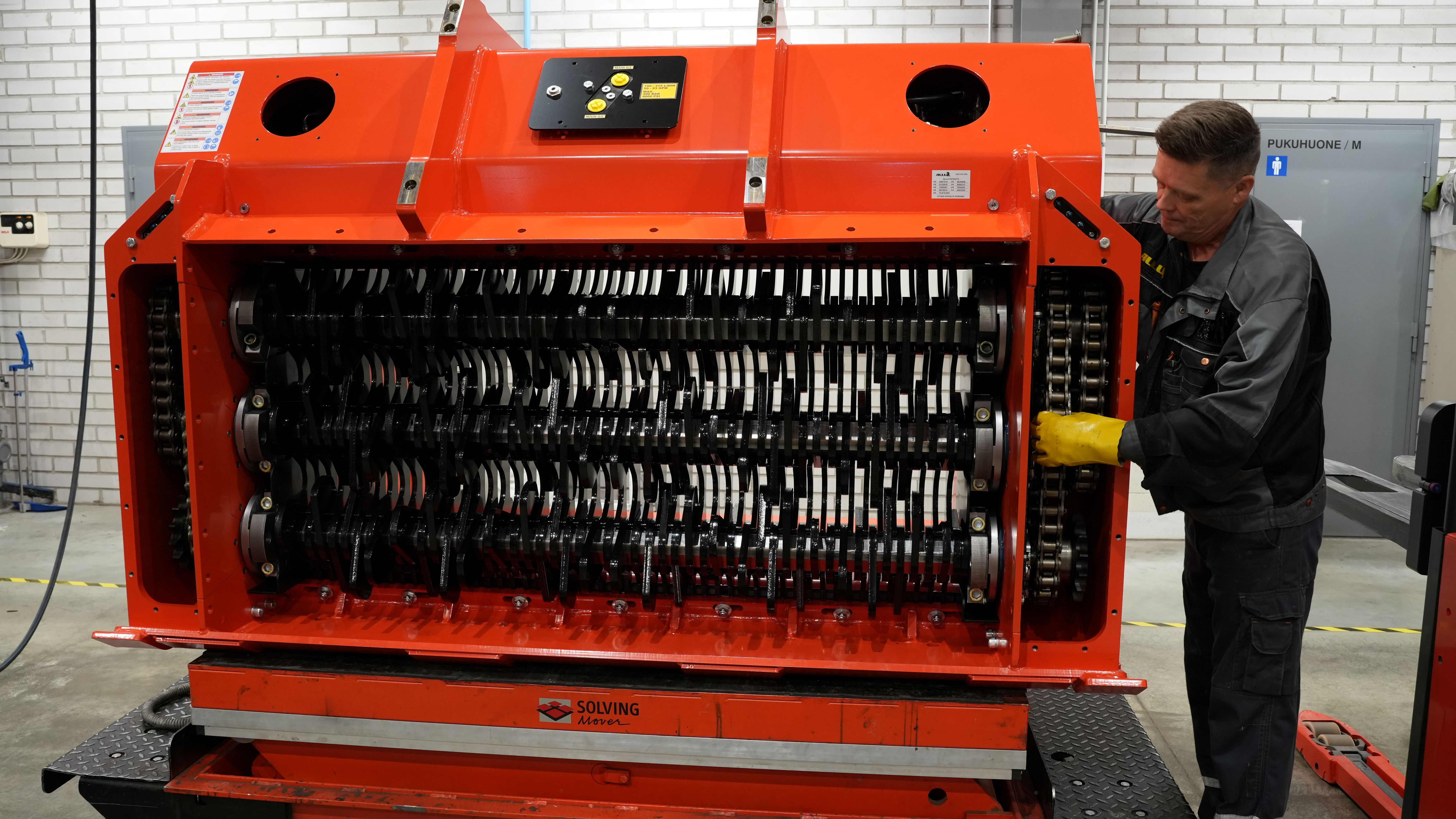
For instance, with the TS structure, it is also possible to get three different fragment sizes from the same unit by rearranging the screening combs, enabling you to configure that bucket to do different types of screening without having to take it completely apart, saving both time and money.
Once the units are assembled, they are taken to a test booth where they are run up for quality control and to check for leaks, prior to being stored in the dispatch area.
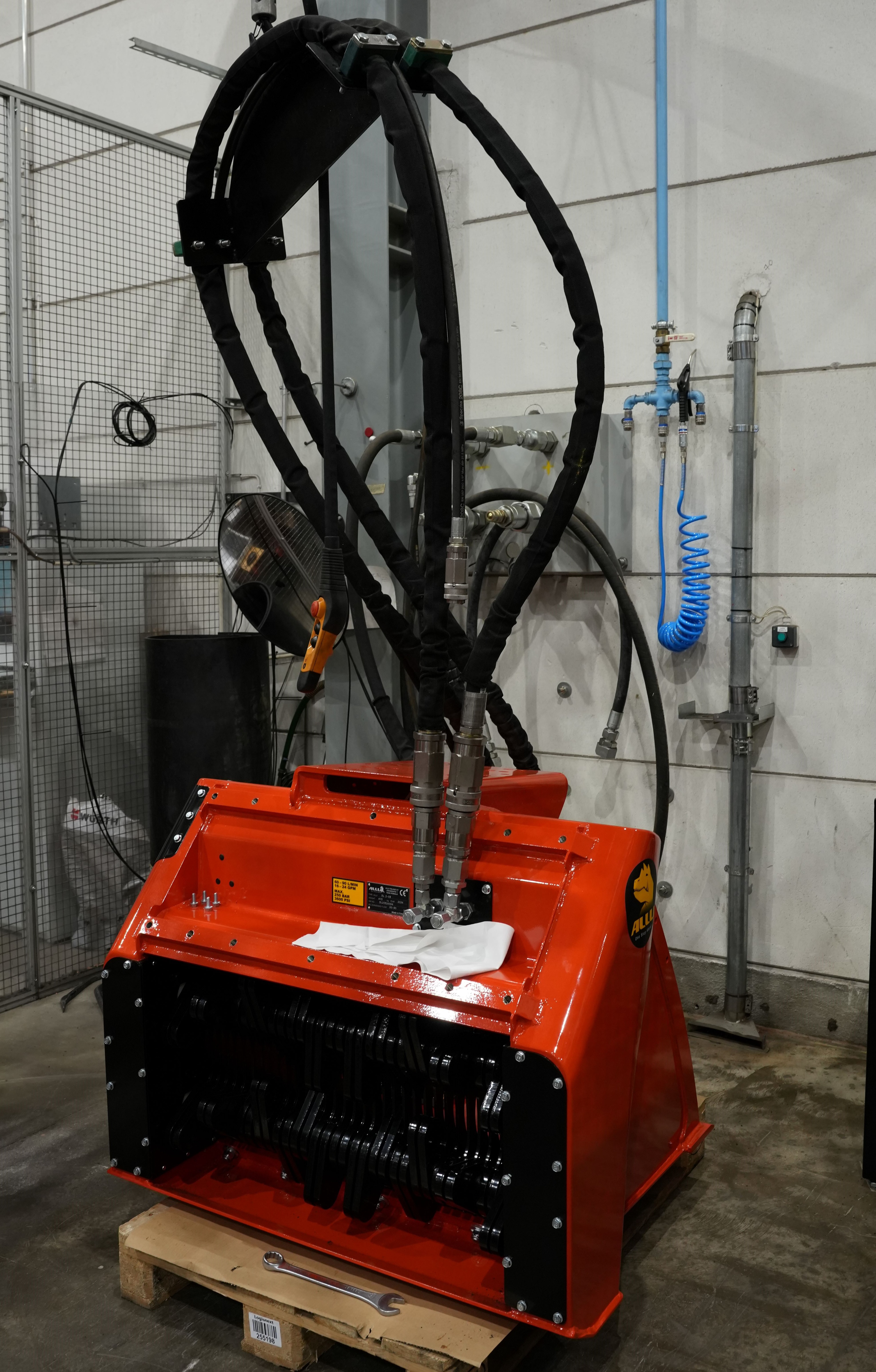
New products are always coming at ALLU and I was privileged to be given a sneak preview of an all-new compact screening bucket model called the Mini Grizzly (MG-07) we will have more on this in the future.
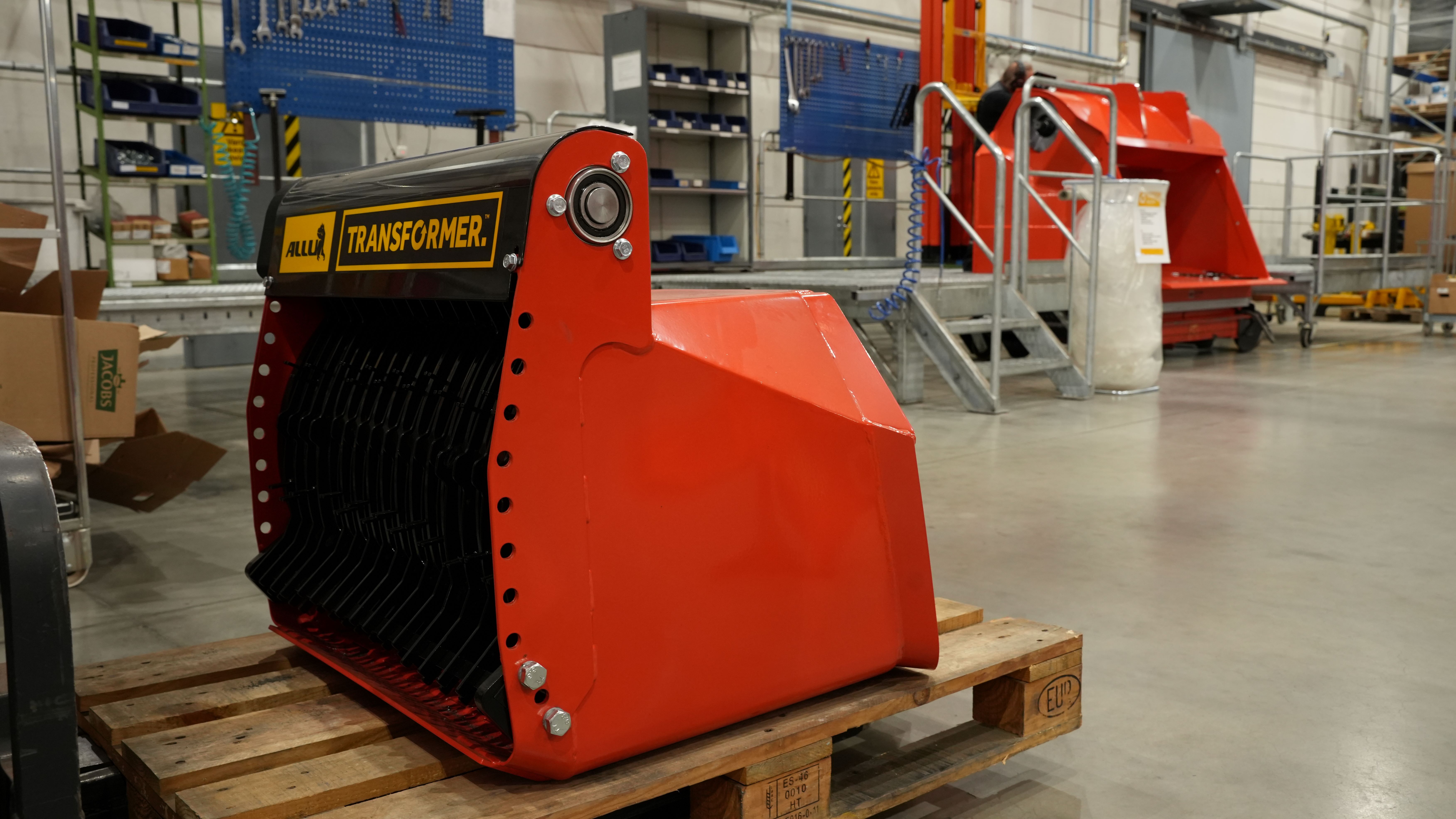
There were also examples of ALLU’s self-propelled soil improvement machines being put together, which are aimed at the soil stabilisation sector.
I was then invited outside to the companies own demonstration area where I discovered they have their very own Volvo ECR355E which is personalised in an ALLU wrap. This beautiful looking machine is used at exhibitions from time to time and at the factory for testing of prototype buckets and for demonstrating to visitors like me.
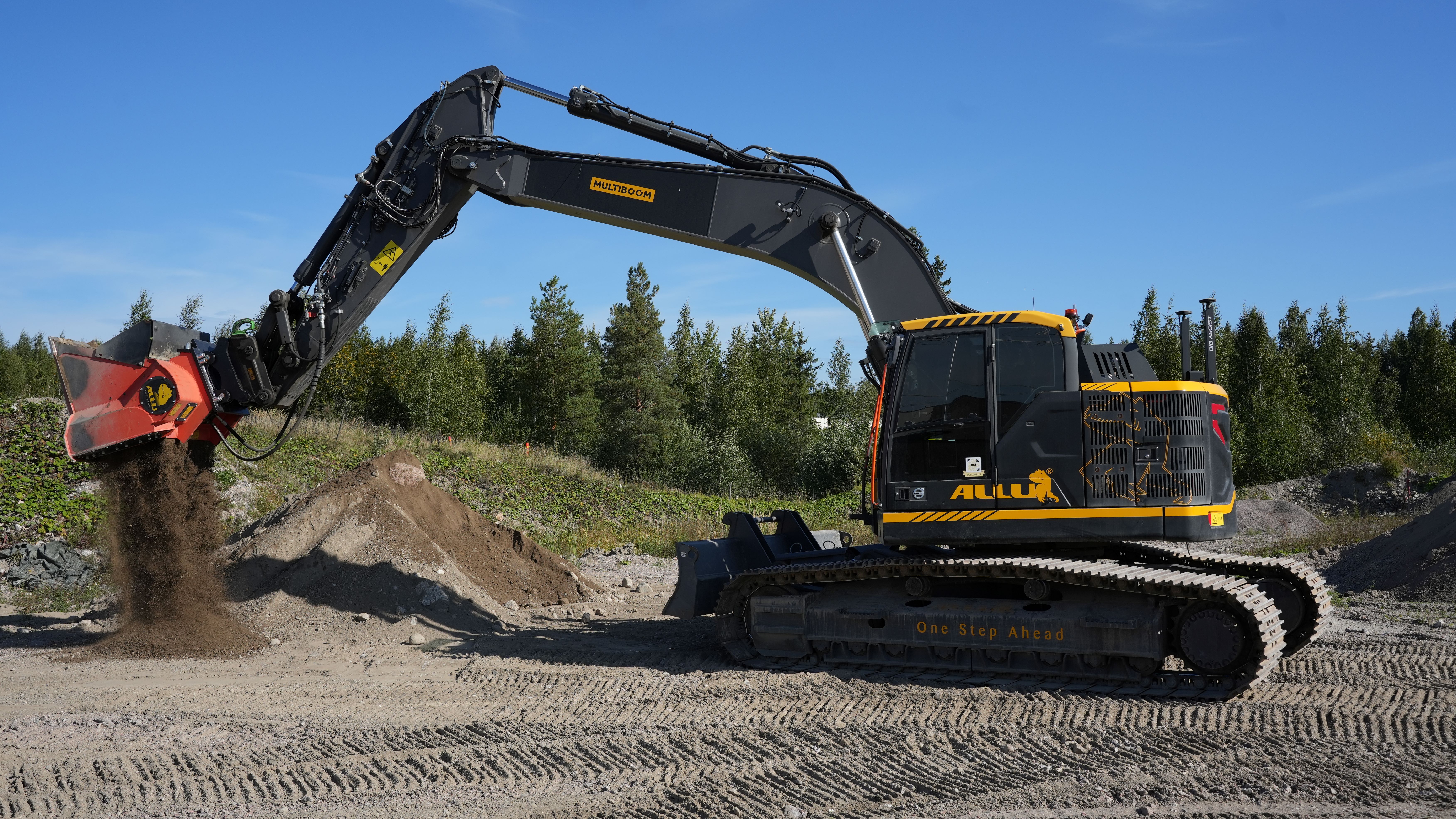
I was invited to get behind the levers and do some screening myself. Its not something I had done much of during my operating career, but it immediately felt natural even when working in face shovel style. There was something extremely satisfying about screening this material and depositing the large stones in front of the pile, obviously this pile of material has been worked over and over again but I have to say the quality of the finished product was superb. ALLU’s screening blades never once looked clogged up and I was told this is even the case when working with moist or even completely wet soil.
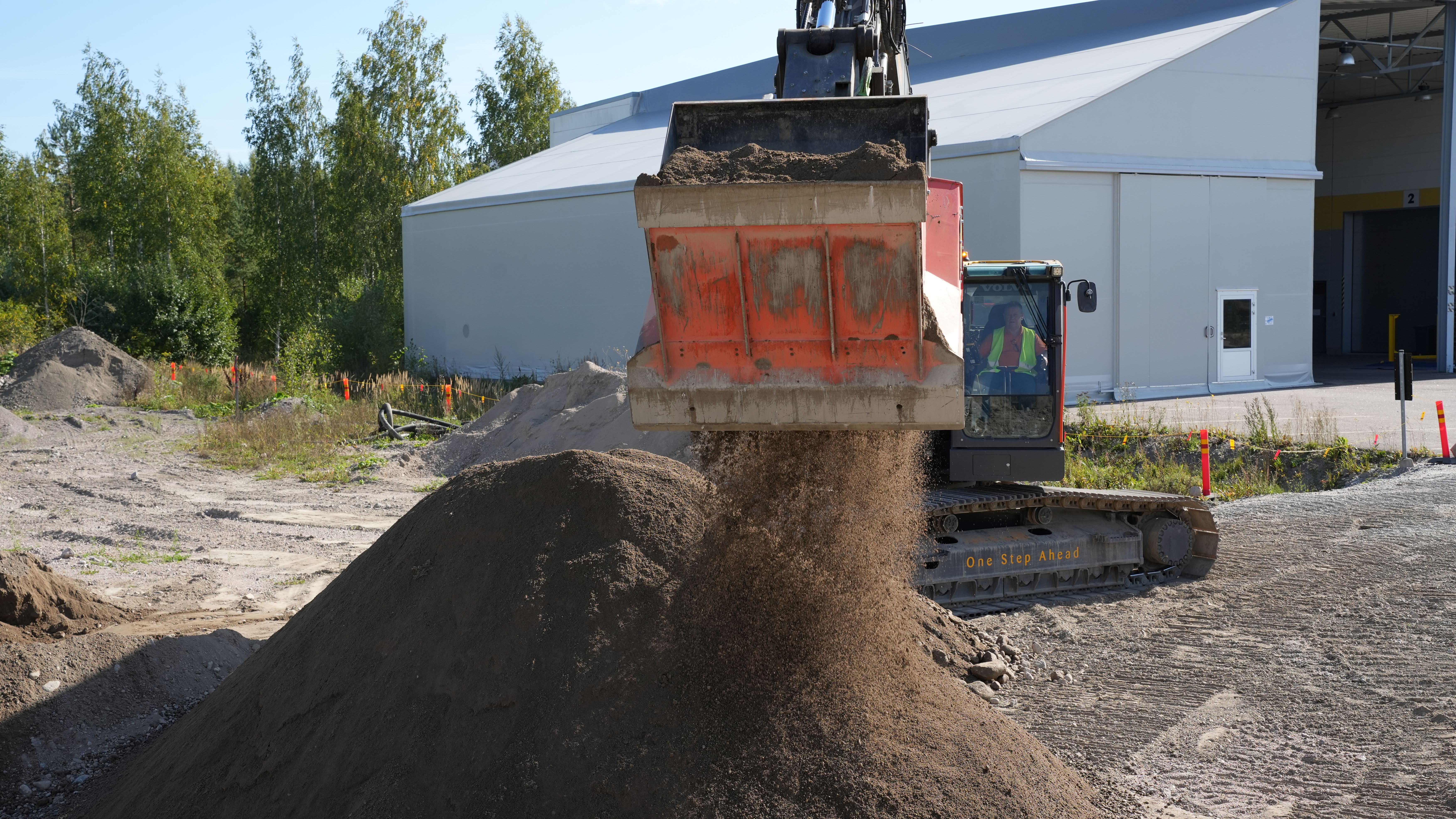
Having done my little shift on the excavator, a walk around to the main entrance of the offices revealed a lovely restored example of the ALLU SM which was their first ever screening bucket, a fitting legacy of how far this Finnish family business has come since those early days, to be one of the most well-known global players in the screening bucket industry today.
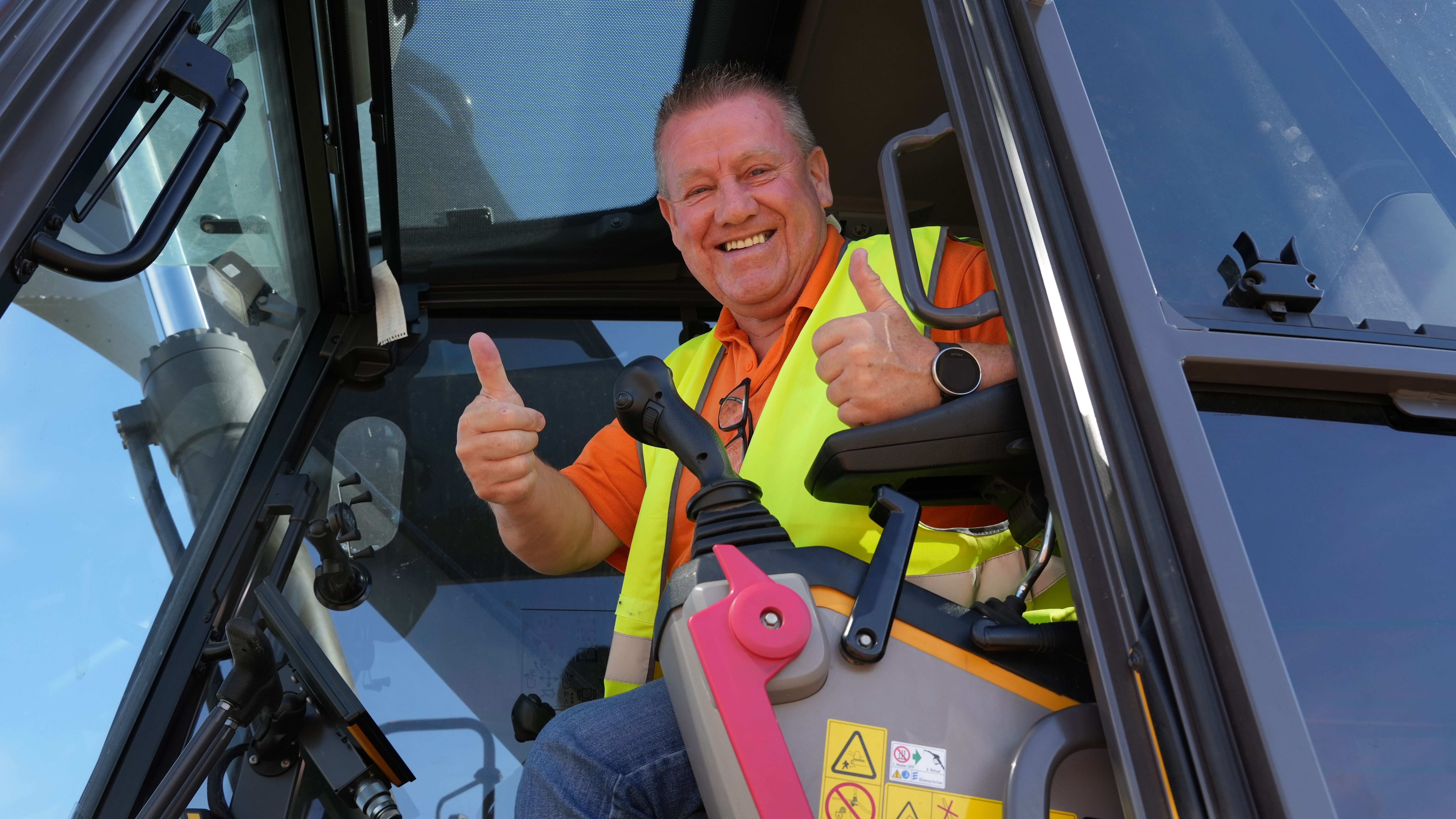
Checkout our YouTube Short video from the demo area in Finland,
Special thanks must go to ALLU’s Fredrik Dromberg - VP of Sales, Antti Rautamies – Product Development, Ville Vainio – Support Team, Aleksi Kujamäki – Area Sales Manager and Johanna Mäkelä – Marketing Manager for their help on the day of our visit.